Hyundai Kona vs Mazda 2 Hybrid - Differences and prices compared
Compare performance (218 HP vs 116 HP), boot space and price (23100 £ vs 21400 £ ) at a glance. Find out which car is the better choice for you – Hyundai Kona or Mazda 2 Hybrid?
Costs and Efficiency:
Looking at overall running costs, both models reveal some interesting differences in everyday economy.
Mazda 2 Hybrid has a barely noticeable advantage in terms of price – it starts at 21400 £ , while the Hyundai Kona costs 23100 £ . That’s a price difference of around 1637 £.
Fuel consumption also shows a difference: Mazda 2 Hybrid manages with 3.80 L and is therefore distinct more efficient than the Hyundai Kona with 4.60 L. The difference is about 0.80 L per 100 km.
Engine and Performance:
Under the bonnet, it becomes clear which model is tuned for sportiness and which one takes the lead when you hit the accelerator.
When it comes to engine power, the Hyundai Kona has a clearly edge – offering 218 HP compared to 116 HP. That’s roughly 102 HP more horsepower.
In acceleration from 0 to 100 km/h, the Hyundai Kona is noticeable quicker – completing the sprint in 7.80 s, while the Mazda 2 Hybrid takes 9.70 s. That’s about 1.90 s faster.
Space and Everyday Use:
Cabin size, boot volume and payload all play a role in everyday practicality. Here, comfort and flexibility make the difference.
Both vehicles offer seating for 5 people.
In curb weight, Mazda 2 Hybrid is somewhat lighter – 1180 kg compared to 1370 kg. The difference is around 190 kg.
In terms of boot space, the Hyundai Kona offers distinct more room – 466 L compared to 286 L. That’s a difference of about 180 L.
When it comes to payload, Hyundai Kona somewhat takes the win – 490 kg compared to 435 kg. That’s a difference of about 55 kg.
Who wins the race in the data check?
The Hyundai Kona sits well ahead of its rival in the objective data comparison.
This result only shows which model scores more points on paper – not which of the two cars feels right for you.
Costs and Consumption
View detailed analysis
Engine and Performance
View detailed analysis
Dimensions and Body
View detailed analysis

Hyundai Kona
Hyundai Kona
The Hyundai Kona wears its personality on the outside with bold styling and sprightly handling that turns city driving into something a little more fun than a commute. It blends practical space, modern tech and sensible running costs into a compact, stylish package — a smart pick if you want flair without paying luxury prices.
details



Mazda 2 Hybrid
The Mazda 2 Hybrid brings Mazda’s trademark driving flair to the city, combining smooth, efficient running with unexpectedly eager handling that keeps short trips engaging. Compact, nicely finished and sensible on running costs, it’s a clever choice for buyers who want the economy of a small car without sacrificing cabin quality or personality.
details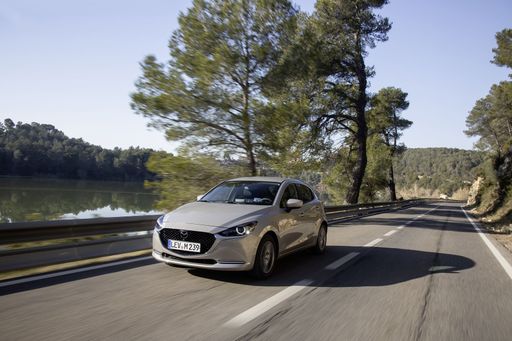
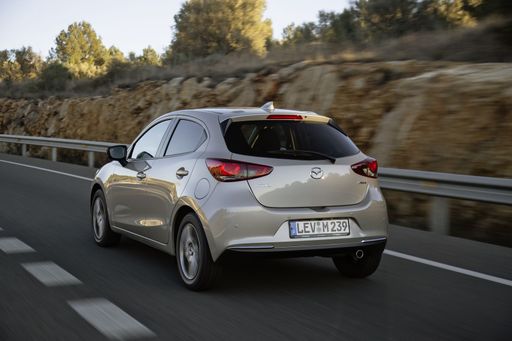
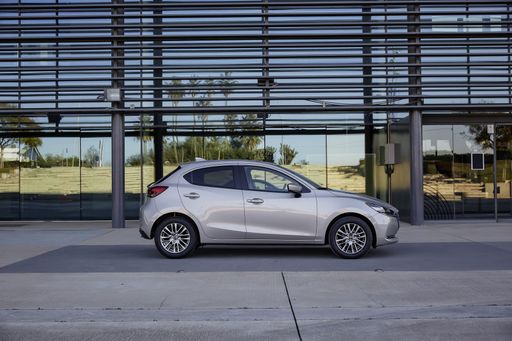
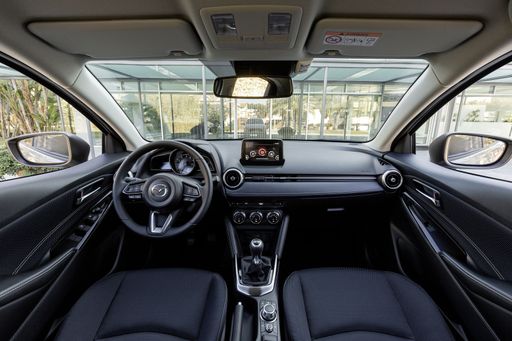
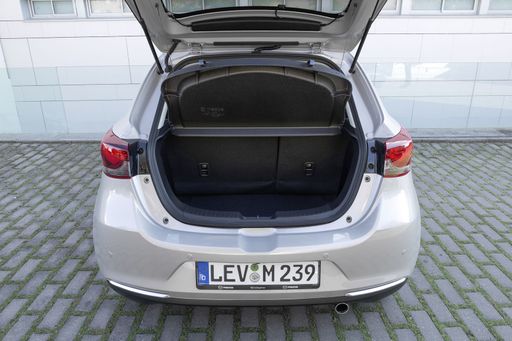
Costs and Consumption |
|
|---|---|
|
Price
23100 - 41600 £
|
Price
21400 - 28200 £
|
|
Consumption L/100km
4.6 - 7 L
|
Consumption L/100km
3.8 - 4 L
|
|
Consumption kWh/100km
14.6 - 16.8 kWh
|
Consumption kWh/100km
-
|
|
Electric Range
377 - 514 km
|
Electric Range
-
|
|
Battery Capacity
1.3 - 65.4 kWh
|
Battery Capacity
-
|
|
co2
0 - 163 g/km
|
co2
87 - 93 g/km
|
|
Fuel tank capacity
38 - 47 L
|
Fuel tank capacity
-
|
Dimensions and Body |
|
|---|---|
|
Body Type
SUV
|
Body Type
Hatchback
|
|
Seats
5
|
Seats
5
|
|
Doors
5
|
Doors
-
|
|
Curb weight
1370 - 1773 kg
|
Curb weight
1180 kg
|
|
Trunk capacity
466 L
|
Trunk capacity
286 L
|
|
Length
4350 - 4385 mm
|
Length
-
|
|
Width
1825 mm
|
Width
1745 mm
|
|
Height
1580 - 1585 mm
|
Height
-
|
|
Max trunk capacity
1300 L
|
Max trunk capacity
-
|
|
Payload
420 - 490 kg
|
Payload
435 kg
|
Engine and Performance |
|
|---|---|
|
Engine Type
Electric, Petrol, Full Hybrid
|
Engine Type
Full Hybrid
|
|
Transmission
Automatic, Manuel
|
Transmission
Automatic
|
|
Transmission Detail
Reduction Gearbox, Manual Gearbox, Dual-Clutch Automatic
|
Transmission Detail
CVT
|
|
Drive Type
Front-Wheel Drive, All-Wheel Drive
|
Drive Type
Front-Wheel Drive
|
|
Power HP
115 - 218 HP
|
Power HP
116 HP
|
|
Acceleration 0-100km/h
7.8 - 11.9 s
|
Acceleration 0-100km/h
9.70 s
|
|
Max Speed
162 - 210 km/h
|
Max Speed
-
|
|
Torque
200 - 265 Nm
|
Torque
-
|
|
Number of Cylinders
3 - 4
|
Number of Cylinders
3
|
|
Power kW
85 - 160 kW
|
Power kW
85 kW
|
|
Engine capacity
998 - 1598 cm3
|
Engine capacity
1490 cm3
|
General |
|
|---|---|
|
Model Year
2024 - 2025
|
Model Year
2025
|
|
CO2 Efficiency Class
A, D, C, E, F
|
CO2 Efficiency Class
B
|
|
Brand
Hyundai
|
Brand
Mazda
|
Is the Hyundai Kona offered with different drivetrains?
Available configurations include Front-Wheel Drive or All-Wheel Drive.
